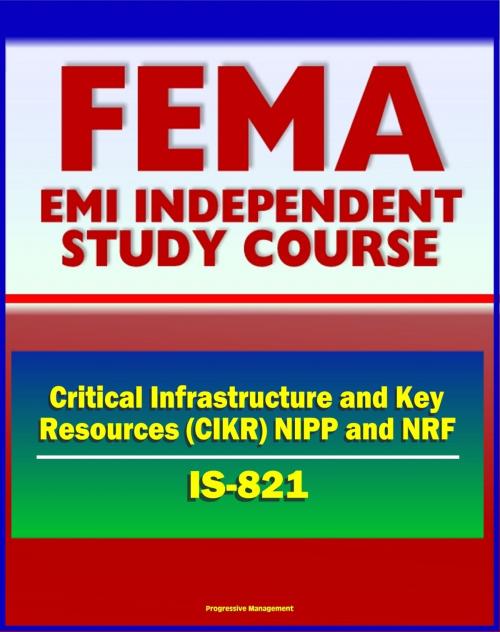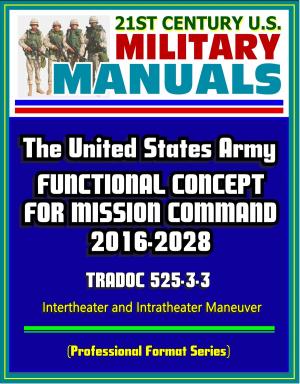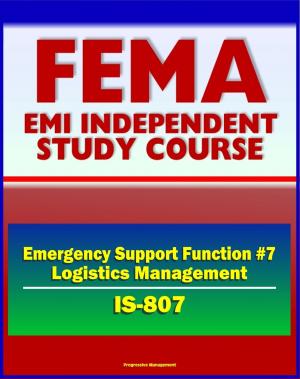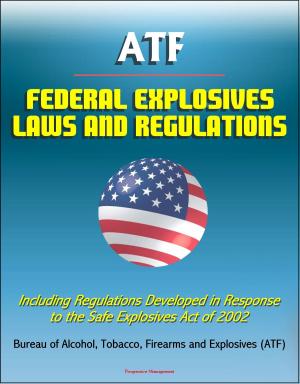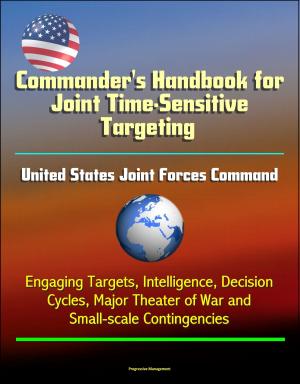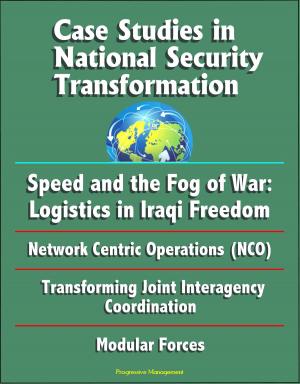21st Century FEMA Study Course: Critical Infrastructure and Key Resources (CIKR) Support Annex (IS-821) - National Infrastructure Protection Plan (NIPP), National Response Framework (NRF)
Nonfiction, Social & Cultural Studies, Political Science| Author: | Progressive Management | ISBN: | 9781465959317 |
| Publisher: | Progressive Management | Publication: | July 16, 2011 |
| Imprint: | Smashwords Edition | Language: | English |
| Author: | Progressive Management |
| ISBN: | 9781465959317 |
| Publisher: | Progressive Management |
| Publication: | July 16, 2011 |
| Imprint: | Smashwords Edition |
| Language: | English |
This Federal Emergency Management Agency (FEMA) independent training course manual from the Emergency Management Institute (EMI) provides an introduction to the Critical Infrastructure and Key Resources (CIKR) Support Annex to the NRF.
The National Response Framework (NRF) presents the guiding principles that enable all response partners to prepare for and provide a unified national response to disasters and emergencies – from the smallest incident to the largest catastrophe. As part of the NRF, Support Annexes describe how Federal departments and agencies, the private sector, volunteer organizations, and nongovernmental organizations (NGOs) coordinate and execute the common support processes and administrative tasks required during an incident. The actions described in the Support Annexes are not limited to particular types of events, but are overarching in nature and applicable to nearly every type of incident.
Course Objectives - At the end of this course, students will be able to:
Describe the relationship between the NRF and CIKR prevention, protection, and response and recovery.
Define the role of the Infrastructure Liaison in supporting coordination with the CIKR sectors and all levels of partners.
Identify the processes defined in the NRF for ensuring that CIKR considerations are integrated into incident response efforts.
This course is intended for government executives, private-sector and nongovernmental organization (NGO) leaders, and emergency management practitioners. This includes senior elected and appointed leaders, such as Federal department or agency heads, State Governors, mayors, tribal leaders, and city or county officials those who have a responsibility to provide for effective response.
Topics covered include: Homeland Security Presidential Directive HSPD-7; Homeland Security Act; National Operations Center (NOC); National Response Coordination Center (NRCC); Cooperating and Coordinating Agencies.
This is a privately authored news service and educational publication of Progressive Management.
This Federal Emergency Management Agency (FEMA) independent training course manual from the Emergency Management Institute (EMI) provides an introduction to the Critical Infrastructure and Key Resources (CIKR) Support Annex to the NRF.
The National Response Framework (NRF) presents the guiding principles that enable all response partners to prepare for and provide a unified national response to disasters and emergencies – from the smallest incident to the largest catastrophe. As part of the NRF, Support Annexes describe how Federal departments and agencies, the private sector, volunteer organizations, and nongovernmental organizations (NGOs) coordinate and execute the common support processes and administrative tasks required during an incident. The actions described in the Support Annexes are not limited to particular types of events, but are overarching in nature and applicable to nearly every type of incident.
Course Objectives - At the end of this course, students will be able to:
Describe the relationship between the NRF and CIKR prevention, protection, and response and recovery.
Define the role of the Infrastructure Liaison in supporting coordination with the CIKR sectors and all levels of partners.
Identify the processes defined in the NRF for ensuring that CIKR considerations are integrated into incident response efforts.
This course is intended for government executives, private-sector and nongovernmental organization (NGO) leaders, and emergency management practitioners. This includes senior elected and appointed leaders, such as Federal department or agency heads, State Governors, mayors, tribal leaders, and city or county officials those who have a responsibility to provide for effective response.
Topics covered include: Homeland Security Presidential Directive HSPD-7; Homeland Security Act; National Operations Center (NOC); National Response Coordination Center (NRCC); Cooperating and Coordinating Agencies.
This is a privately authored news service and educational publication of Progressive Management.
